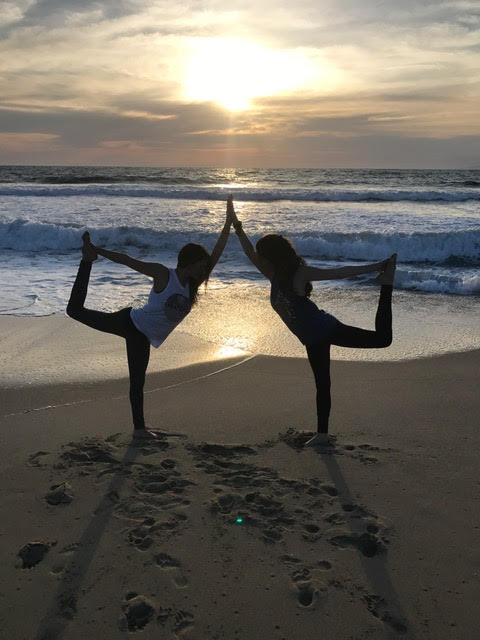Photo Credit: Slava Bowman
You're away from home. You may not have a kitchen. You might be traveling to a place with foreign foods. Your schedule might be thrown off by long travel times, different activities, and time zone changes. While vacations are exciting for most people, for those of us in recovery from eating disorders, they can be more than a little stressful.
It can be tempting to say, "It's okay, I'll just figure it out as I go," but why take the risk? Having a plan may feel a little square, but it's better to have a plan so you can relax if things are going well than to struggle and have no plan for getting back on track. Whether you're heading abroad or traveling closer to home, here are some tips to manage vacation time in eating disorder recovery.
Tip #1 - Communication
Funnily enough, one of the most important factors in eating disorder recovery is also one of the most important factors in travel - communication. Talk to your travel buddy about your needs and concerns. If you need to stop and eat at regular intervals, talk about that. If you're planning on doing something outside of your comfort zone (trying a new food, wearing a bathing suit in public), talk about how they can support you.
Be very clear about what you need, and about what you DON'T need. Sometimes it can add stress to have someone asking about your food choices, and monitoring your bathroom usage. If your buddy is checking up on you more than they need to, you can communicate that, too. "Thanks for checking in, but I've worked out a plan for this part of things. I'll let you know if I need any support outside of what we discussed."
Talking openly about this stuff will set your mind at ease and, most likely, theirs, too. Navigating eating disorders can be tricky - for you, and for those supporting you. Having a clear plan, and knowing how everyone fits into it, can really help make everyone more comfortable.
Tip #2 - Research
Something else you and your travel buddy can do together before you go is research. Figure out where you're staying, and what the food prep options are there. Will you have a kitchen? A mini-fridge? Is breakfast included? Knowing whether you can prepare some of your own meals or if you'll be dining out almost exclusively can help you plan.
You can also look into what restaurants are available near you. Check out the menus, choose a few options that look good to you at each, and write down some places you'd like to try. You don't have to schedule which ones to dine at when, but it's helpful to have choices narrowed down so you don't get overwhelmed. Think of it as "planned spontaneity".
Tip #3 - Do A Test Run
If you're traveling somewhere that has different food options than you're used to, do a test run before you leave. Let's say, for example, you're traveling to Japan. You'd like to try sushi there, but it's not something that you usually eat. Do a test run, in a safe way, before you go. Go to a local sushi restaurant and try a few different varieties. If there isn't a Japanese restaurant in your town, try making a fish and rice-based meal at home.
Get used to the flavors, and investigate how that type of meal works for you. Did you order enough, or would you need a side or another roll to make a satisfactory meal? Did you feel energized after, or were you a little sleepy? This can help you determine where sushi fits into your day when traveling.
Tip #4 - Pack Some Favorites
Even the best-laid plans sometimes go awry. Your flight might be delayed. You may sleep through your alarm and have to rush to the next activity. You may just need the comfort of a familiar food. So pack some.
While I would wholeheartedly encourage you to try new things as often as you can, I recognize that it's not always possible. Having some travel-safe snacks on hand can really help you out in those moments. Take along some protein bars, trail mix, crackers, etc. that you can eat on-the-go, or when things get stressful. Then, plan to get back on the horse. Cook something, order in, or go to a restaurant. Just try not to rely on packed snacks the whole rest of your trip.
Tip #5 - Keep Things (ahem) Moving
Travel can wreak havoc on the digestive system. It's not anything permanent, but constipation and its associated bloating can be triggering for those in recovery. Make sure you're drinking an adequate amount of water, eating some fibrous foods like veggies or beans – don't neglect your fats – and take a walk around the block when you can. You can also talk to your team before you go about the best strategy for you, if constipation hits.
At the end of the day, try not to stress about it. (Easier said than done, I know) Make sure you've packed some stretchy-waisted pants, and try to stay mindful whenever possible. You're hanging with some cool people, seeing some really awesome stuff. Try not to let the only memories you make be of digestive stress.
Tip #6 - Roll With The Punches
No matter how well you plan, there will always be something you didn't see coming. Whether it's a lost pair of sunglasses or a snack you hadn't anticipated, try your best to stay flexible. Breathe, use your buddy for support, and dive in.
Life is all about the unexpected, as is travel, as is recovery. Your challenge will be to keep moving forward, and trying to find the enjoyment wherever you can. Who knows? Maybe that wrong street you turn down will lead you to an amazing view you wouldn't have seen otherwise. Keep your eyes and heart open, and bon voyage!
Kelly Boaz, CNP is a Toronto-based Holistic Nutritionist (CNP), specializing in eating disorder recovery and food freedom. After winning her 17-year battle with anorexia, Kelly Boaz turned her life’s focus to helping others do the same. She is also a writer and speaker (TEDx, TDSB), raising eating disorder awareness, and helping people heal their relationship with food and their bodies. You can find out more about Kelly, or get in touch via her website.
































































































